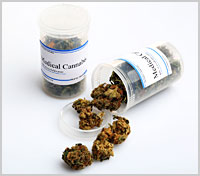Update #2: The House Appropriations Committee released its 2018 Commerce, Justice, Science (CJS) Appropriations bill, which determines the funding levels for numerous federal agencies, including the Department of Justice. Predictably, the bill does not include language — known as the Rohrabacher-Blumenauer amendment — limiting the Justice Department from taking action against state-sanctioned medical cannabis producers, retailers, or consumers.
Representatives Blumenauer and Rohrabacher released the following statement in reponse: “The policy championed by Representatives Blumenauer and Rohrabacher that prevents the Department of Justice from interfering in the ability of states to implement legal medical marijuana laws (previously known as “Rohrabacher-Farr”) has never been included in the base Commerce, Justice, Science, and Related Agencies (CJS) Subcommittee Appropriations bill. Rather, in previous years, Congress has amended the base CJS bill to include these protections.
We are exactly where we thought we would be in the legislative process and look forward to amending the underlying bill once again this year to make sure medical marijuana programs, and the patients who rely on them, are protected. Voters in states across the country have acted to legalize medical marijuana. Congress should not act against the will of the people who elected us.”
Update #1: House and Senate lawmakers have signed off on the Consolidated Appropriations Act of 2017 to fund the federal government through September 30, 2017. The measure reauthorizes and updates the Rohrabacher-Blumenauer amendment, as well as a similarly worded amendment protecting state-sponsored industrial hemp programs. Both amendments will remain in effect until September 30, at which time members of Congress will once again need to either reauthorize the language or let the provisions expire. Non-medical retail marijuana businesses operating in the eight states that regulate adult use sales are not protected by this act and still remain vulnerable to federal interference or prosecution.
Since 2014, members of Congress have passed annual spending bills that have included a provision protecting those who engage in the state-sanctioned use and dispensing of medical cannabis from undue prosecution by the Department of Justice. The amendment, known as the Rohrabacher-Blumenauer Amendment, maintains that federal funds can not be used to prevent states from “implementing their own state laws that authorize the use, distribution, possession or cultivation of medical marijuana.”
Congress re-authorized the amendment as part of a short term spending package. This bill extends federal funding through September 30, 2017, at which time the measure — and the Rohrabacher-Blumenauer amendment — will expire.
According to recently released nationwide survey data, the majority of Americans are on our side. A whopping 94 percent support the medical use of marijuana. Perhaps most importantly, 71 percent of voters — including strong majorities of Democrats, Republicans, and Independents — say that they “oppose the government enforcing federal laws against marijuana in states that have already legalized medical or recreational marijuana.”
Please enter your information below to contact members of the incoming Congress and urge them to include these important patient protections as part of any future, long-term appropriations legislation.
This amendment is strongly supported by both voters and lawmakers and ensures the safety of millions of patients. Congress must not turn its back on those millions of Americans who rely on these state-authorized programs for their health and wellness.


